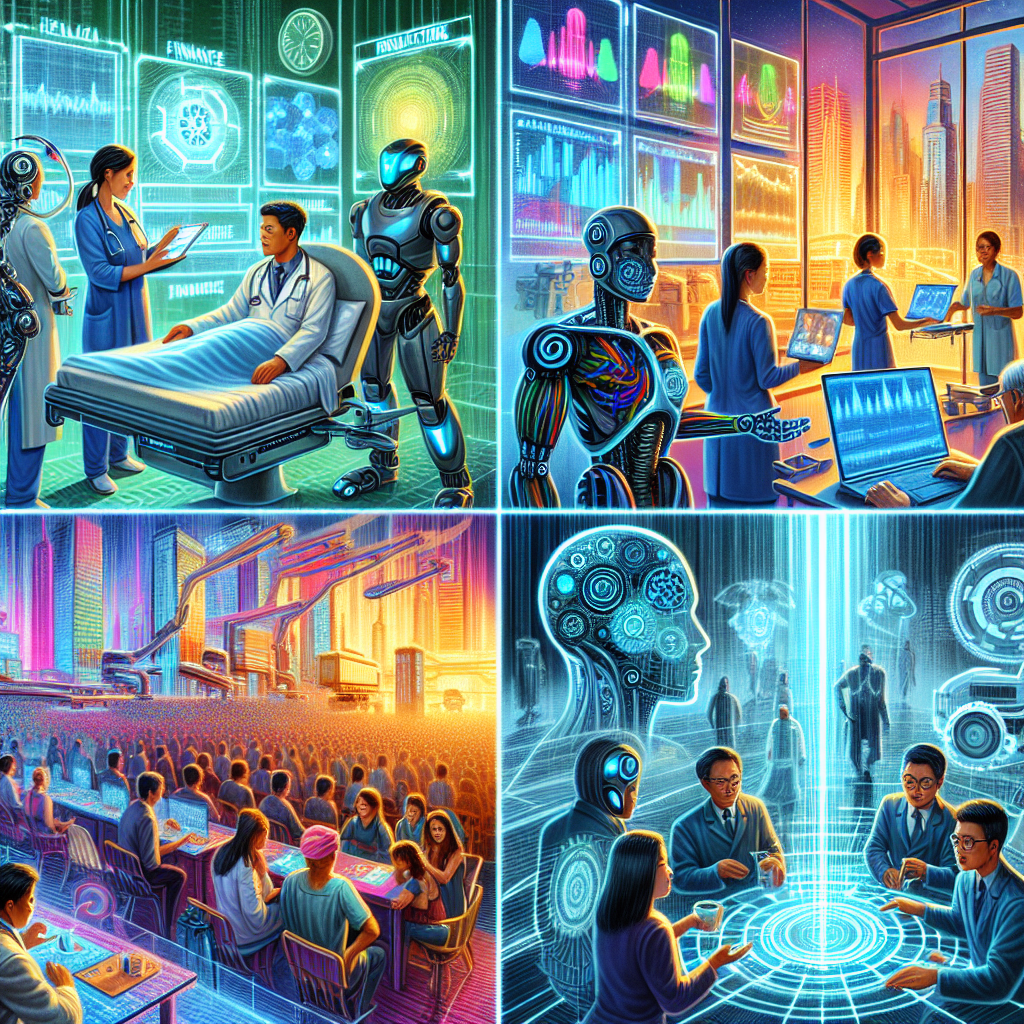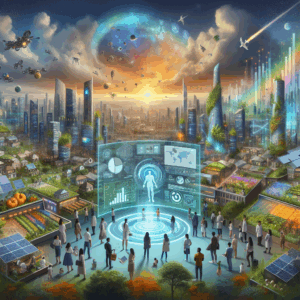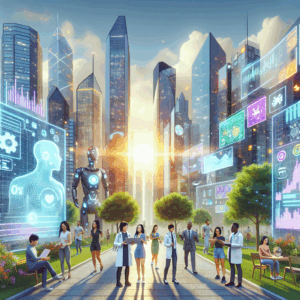AI Technology and Its Impact on Various Industries
Introduction
Artificial Intelligence (AI) represents one of the most transformative technological advancements of our time. As we integrate AI solutions into various facets of life, it’s imperative to understand its sweeping impacts across different industries. AI’s deployment is no longer confined to speculative future applications; it is now a tangible force reshaping sectors such as healthcare, finance, manufacturing, and education. This blog post will explore these industries, illustrating how AI is already making significant changes and what future developments may look forward to.
AI in Healthcare
Artificial Intelligence is increasingly indispensable in healthcare, offering innovative solutions for diagnostics and patient care optimization. AI algorithms excel in analyzing vast datasets to recognize patterns that would be impossible for humans to detect alone. For instance, AI-powered imaging tools can scrutinize medical images with remarkable precision, aiding in the early detection and diagnosis of conditions like cancer.
Moreover, AI’s involvement in drug discovery and clinical trials has accelerated the development of new medicines. By modeling vast biological and chemical data, AI can predict how certain compounds will interact with biological targets. This predictive capability shortens the drug discovery timeline, bringing effective treatments to market faster than traditional methods. However, these advancements are not without challenges. Issues of data privacy, ethical use of AI, and the potential for job displacement in the medical sector continue to pose significant hurdles that need addressing.
AI in Finance
In finance, AI is redefining risk management and ethical perspectives. Advanced AI models are applied to detect fraud and manage risks, drawing on the ability to analyze massive transactional data to spot anomalies indicative of fraud. This not only enhances security but also builds trust with customers.
Furthermore, AI-driven trading algorithms are revolutionizing investment strategies. These algorithms learn and adapt rapidly to market conditions, offering a level of precision and speed unattainable by human traders. Additionally, customer service in the finance sector has been enhanced by AI through chatbots and virtual assistants. These AI entities can provide customers with 24/7 support, enhancing satisfaction by efficiently resolving inquiries or issues.
AI in Manufacturing
The manufacturing sector is equally experiencing dramatic changes due to AI. Automation powered by AI is optimizing production processes, improving efficiency, reducing costs, and minimizing human error. AI’s capability in predictive maintenance is another game-changer—it allows manufacturers to anticipate equipment failures before they occur, thereby minimizing downtime and saving on repair costs.
However, the automation of tasks once performed by human workers is altering the workforce dynamics. It necessitates a shift in required skills, emphasizing the importance of education and continuous training in AI and robotics to prepare the current workforce for new technological needs.
AI in Education
Education is witnessing a transformation through AI, primarily by personalizing learning. AI systems can assess individual student’s skills and needs, customizing instruction and learning pace thus, optimizing educational outcomes. This level of personalization encourages not only better learning but also greater student engagement.
AI also assists in administrative tasks such as grading and performance evaluation, allowing educators to devote more time to teaching instead of paperwork. However, implementing AI in education presents challenges regarding data privacy and security. As educational institutions increasingly rely on digital platforms, ensuring the security of students’ personal information becomes paramount.
Cross-Industry Implications and Future Trends
AI’s impact extends across industries, presenting common themes such as enhanced efficiency and the transformation of traditional practices. As AI technology evolves, its integration with other emerging technologies like quantum computing heightens its potential, offering possibilities for unprecedented advancements.
Future developments will likely include more pervasive AI applications capable of not only adapting to different industries but also fostering collaboration between them. The synergy between AI and quantum computing, for instance, promises to unlock new possibilities in data processing and problem-solving.
Conclusion
AI is undoubtedly a transformative force across healthcare, finance, manufacturing, and education—industries that form much of the fabric of our society. While the potential benefits are enormous, these advancements come with their own set of ethical and practical challenges. As industries continue to integrate AI technologies, there’s a crucial need for responsible and informed deployment. This involves addressing ethical concerns, ensuring digital security, and fostering collaboration across sectors. As we look to the future, AI holds the promise of continued evolution, driving innovation, efficiency, and improvement across all arenas.





